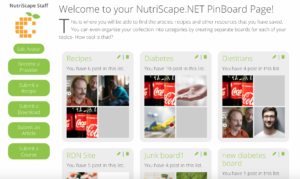Remember-It’s Always Food First
The foundations of overall health are nutrition, sleep, physical activity, and healthy relationships. When it comes to nutrition, your body can’t get what it needs from supplements. That’s why the right nutrition strategy is always food first.
Why A Multivitamin Should Be Considered
A good multivitamin is one that provides a wide range of vitamins and minerals. There are over 40 different nutrients and other bioactive molecules we get from foods that each fill a critical role in basic cell functions. Miss any one of them, and it throws a wrench into the molecular machinery. With so many vital trace ingredients, a multivitamin provides a good insurance policy for dietary nutrient gaps.
Why One Multivitamin Is Better Than a Handful of Separate Pills
More Is Not Better
There is always the temptation to think that “if a little is good, more has got to be better.” Not true. While some water-soluble vitamins can be taken at high doses without any problems, many nutrients provide benefits only within a certain dosage range.
Some Nutrients Compete With Others
This is particularly true for minerals that compete for the same absorption sites. For example, if you take too much zinc, it will interfere with iron absorption.
Some Nutrients Depend on Others
A classic example of nutrient interdependency is the relationship between calcium and vitamin D. When there is not enough vitamin D, calcium absorption is reduced. Another: iron is absorbed better when taken with vitamin C.
Single Nutrient Supplements vs. Multivitamins
In the world of natural whole foods, there is a natural balance between nutrients that makes it highly likely that you’ll get what you need if you eat a variety of foods. Most multivitamins generally –more or less– simulate the general vitamin and mineral content of the overall diet.
Many single nutrient supplements are highly focused on one nutrient and are aimed at correcting a suspected deficiency. The most common examples are vitamin D, vitamin B12, and iron, where blood testing can show that there is a clear deficiency. Nutrient deficiencies often come in large groups. Usually, when a person’s overall food intake is missing one nutrient, it’s missing a whole range of other nutrients at the same time. For example, when vegetables are missing, there would be deficiencies in not only vitamin A, but also vitamin C, a whole range of B vitamins, and several minerals.
What’s in the Typical Multivitamin
- Vitamin A is needed for vision and wound healing.
- B Complex Vitamins are needed for cellular energy metabolism.
- Vitamin C is an antioxidant and helps build collagen.
- Vitamin D is involved in immunity and bone health.
- Vitamin E is an antioxidant.
- Vitamin K is involved in blood clotting.
- Vitamin K2 is involved in bone health.
- Iron is involved in hemoglobin function.
- Chromium is involved in blood glucose metabolism.
- Iodine is involved in thyroid function.
- Magnesium is involved in muscle contraction and glucose metabolism.
- Manganese is a cofactor for numerous enzymes.
- Molybdenum is also a cofactor in many enzymes.
- Selenium functions as an antioxidant.
- Zinc is involved in wound healing.
Registered Dietitian/Nutritionists (RDN’s) Are Ready to Help.
Nutrition is foundational to feeling well enough to have the energy for pursuing all other life goals. Given the complexities of balancing age, gender, and medical considerations along with personal food enjoyment, food and supplement choices can get complicated. You can find the practical answers you need by consulting online with an RDN on our telehealth site.
Online Supplement Resource:
Pure Encapsulations
This is a high-quality multivitamin option that contains a balance of vitamins and minerals including choline, CQ10, inositol, lycopene, alpha-lipoic acid, lutein, and zeaxanthin.
It is appropriate for men or women, adults and seniors.


 Scan Me!
Scan Me!


